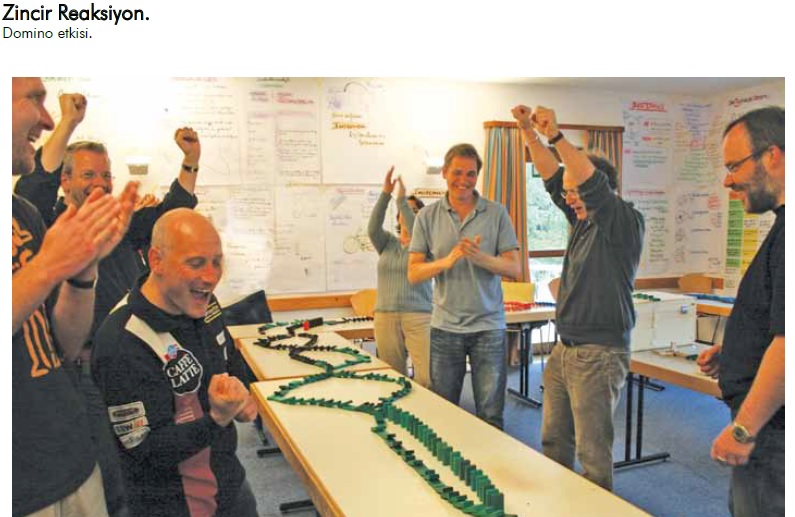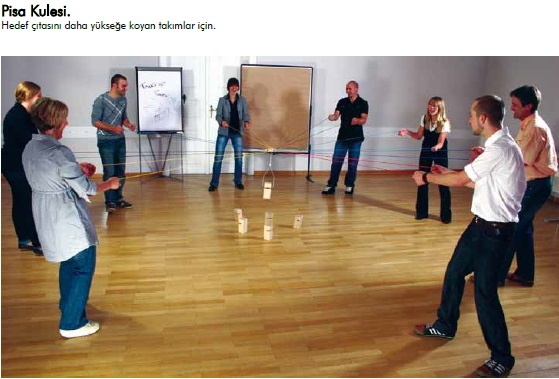Target Group: Any level employee of sales, marketing and customer relations department.
AIM:
At the end of the training, participants will:
- Manage sales, marketing and customer relations process better
- Gain a whole new perspective and skills of initiating, maintaining and ending conversations with customer,
- Communicate better with their customers and will be able to maintain a long-term customer relations.
MAIN GOALS:
Participants are aimed to carry out their new skills and techniques that they recently learned in the field and make a noticeable change in their work life.
CONTENT:
- NEEDS ANALYSIS FOR SALES TEAM
- Creating a common language
- Differences in perception and flexibility
- Presenting alternatives with benefit sentences and evaluation
- Role distribution via redirecting, following and feedback.
- Proactive approaches and creating backdrop
- Moderator and Facilitator identity
- Professional comman identity (win/win)
- Service and trust relationship
- Team consciousness and importance of belonging
- Consistency and sustainability
- Calmness and calm approaches.
- Positiveness, managing negative emotions and stress
- COMMUNICATION IN SALES TEAM AND RELATIONSHIP DIMENSION
- 2D (dimension) communication model
- Information density / support density / other side’s level of prepareness
- Obstacles of communication
- Verbal, written and face to face communication
- Feedback
- Sustainability
- LISTENING SKILLS (LISTENING SKILLS TEST)
- Listening skills; how do we listen?
- Active or passive, effective and accurate listening
- Self openness, honesty and transparency
- Empathetic listening, seem like listening, effective listening and selective listening
- PRINCIPLES OF SALES AND MARKETING PROCESS, FIRST STEPS
- Basic sales skills and solving sales problems
- Opening sales interciew (buying signals and sensing accurately)
- Coping and objections
- Continuity and deepness of interest and preparatory work
- Importance of product knowledge*
- Customer analysis*
- Competition knowledge
- MANAGING IN SALES TEAMS
- What is a team?
- Stages of being a team (advantages and difficulties)
- Areas to monitor constantly by team members
- Team spirit and importance of sinergy
- PERSONALTY MANNERS FOR SALESPERSON (BOWEN TEST)
- Aggressive, consturctive and submissive behaviour
- Understanding different manners and different approaches and developing proper sales approaches.
- Introverts, extroverts, relationship orienteds and business orienteds
- How to understand our customer’s and our own behaviour model?
- SOURCES OF POWER AND USING THEM
- Positional power
- Personal power
- Self-confidence approach
- Personal knowledge
- Courage and modest
- EVALUATION AND CLOSING
COMMUNICATİON - TRUST - HARMONY AND UNDERSTANDING PRACTISE

TEAM HARMONY - TRUST - LISTENING - UNDERSTANDING - DELEGATION - COMMON LANGUAGE - COORDINATION

METHOD:
- Knowledge shareing, group and duo applications and evaluations
- Case studies and sample films
- Interactive practises with role playing and case study
- Applications to boost knowledge and motivation with import equipment
- METALOG equipments are used in Psychology of Sales program. 70% of the time are made of applications, practices and group work. The program is very joyous and fruitful
- In addition to this: interactive discussions, instructive in-door games and feedbacks, individual analysis or inventory applications, group works, sample film and cases are the main elements of this program.